…based primarily on merit, depth, artistic distinction.
HE 100% agrees in the matter of Jeffrey Wright’s American Fiction performance.
…based primarily on merit, depth, artistic distinction.
HE 100% agrees in the matter of Jeffrey Wright’s American Fiction performance.
…eyes that seemed alert and perceptive but also warm and a bit vulnerable as opposed to the chilly, frozen-eyed, alien-from-Tralfamadore features of Cillian Murphy.
Yes, I’ve finally borrowed “American Prometheus”…better late than never.
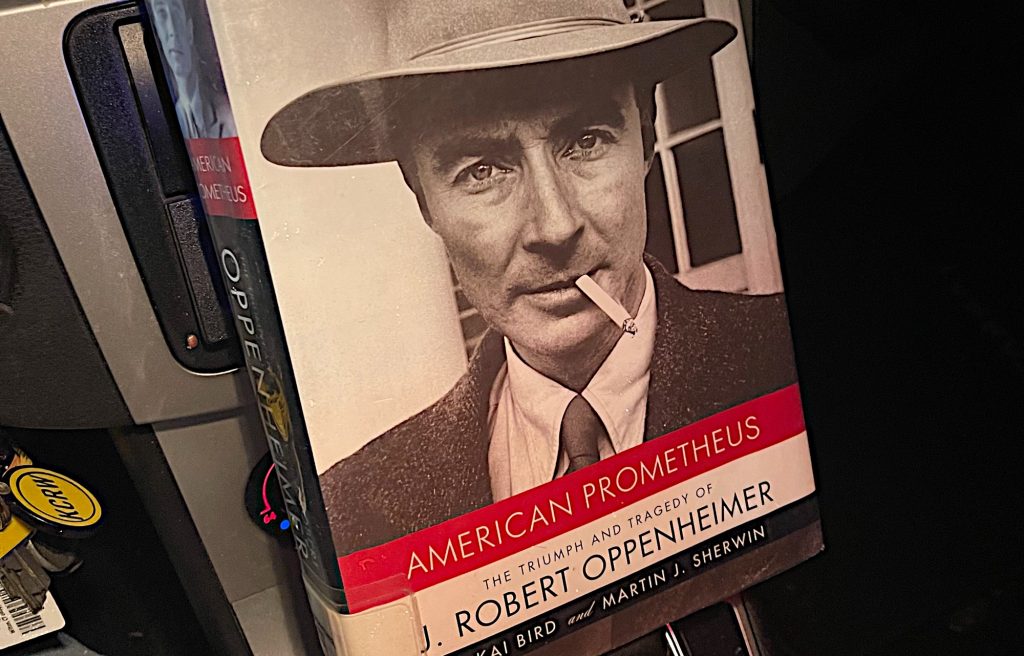
It was three long–ass years ago when news broke that Timothee Chalamet would play the creatively transitioning (acoustic folkie to electric poet-with-sunglasses) Bob Dylan in James Mangold’s A Complete Unknown. Now it’s actually, finally going before the cameras sometime in March.
This is Chalamet’s big chance to step out of the not-quite-happening place he’s been standing in for the last six years (throwing Woody under the bus, Little Women, Beautiful Boy, Bones and All, the Dune franchise, Wonka) and do something cool and provocative for a change. Maybe.
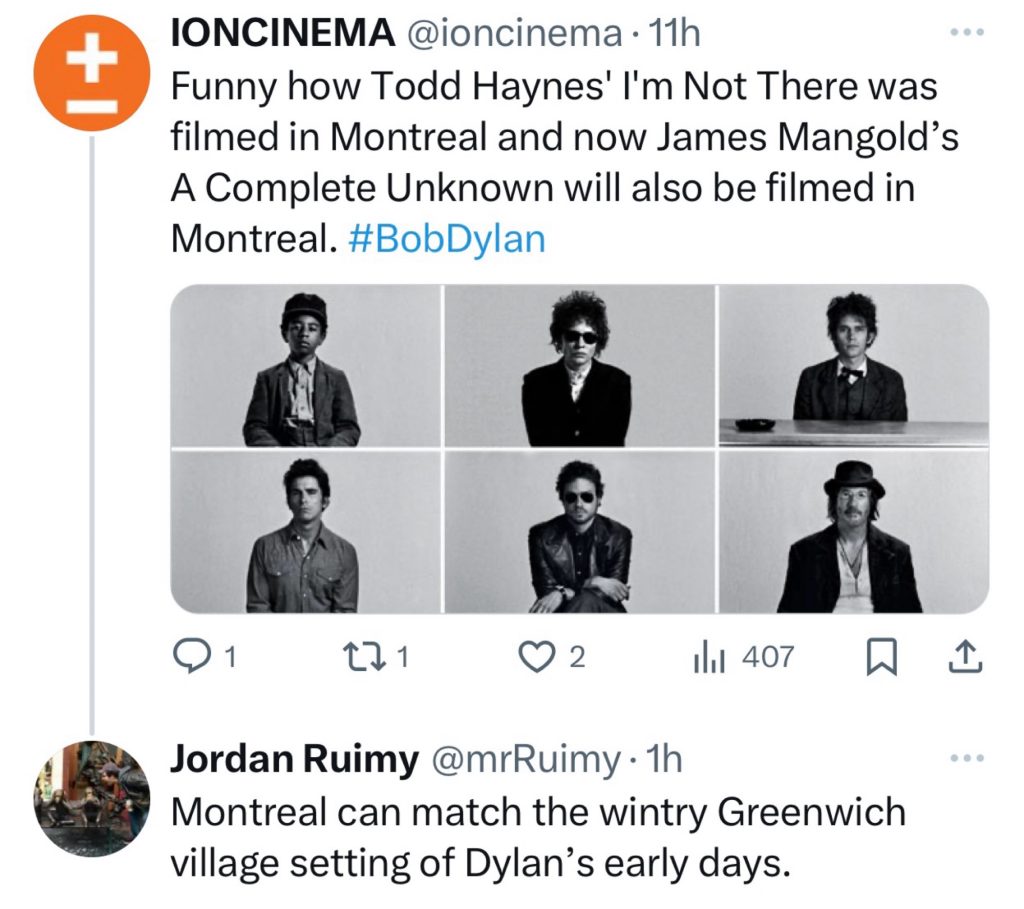
Posted last spring…
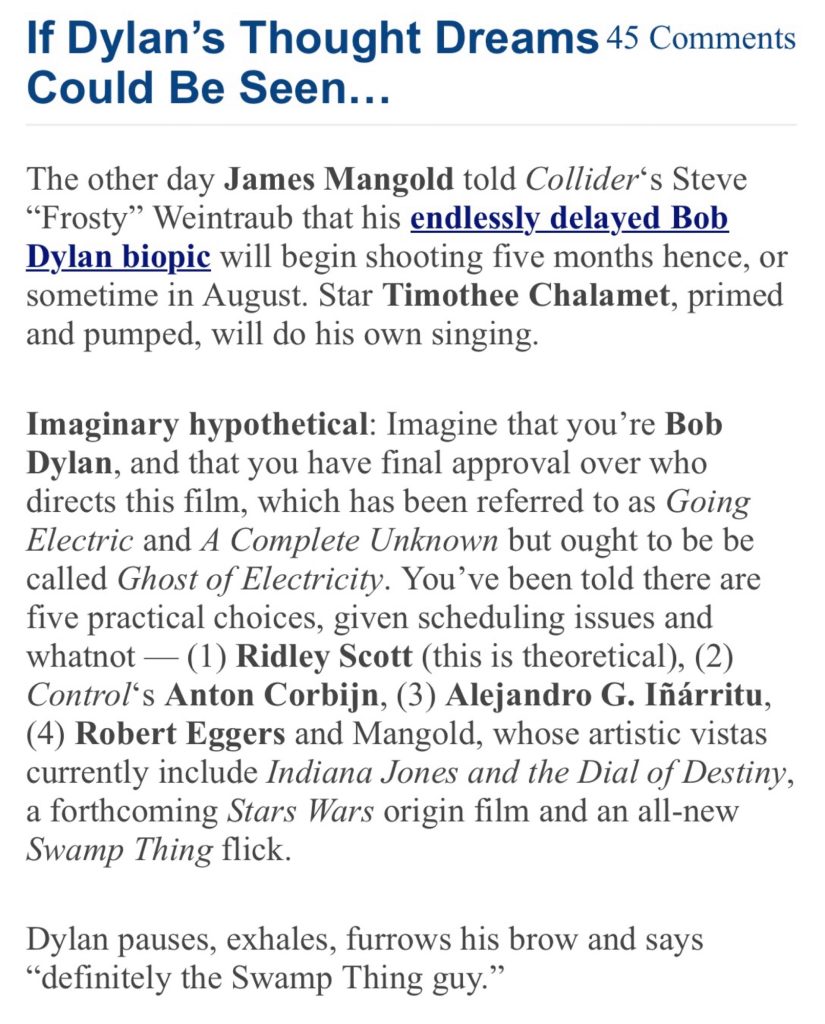
Posted this morning by an apparently genuine Steve Martin:
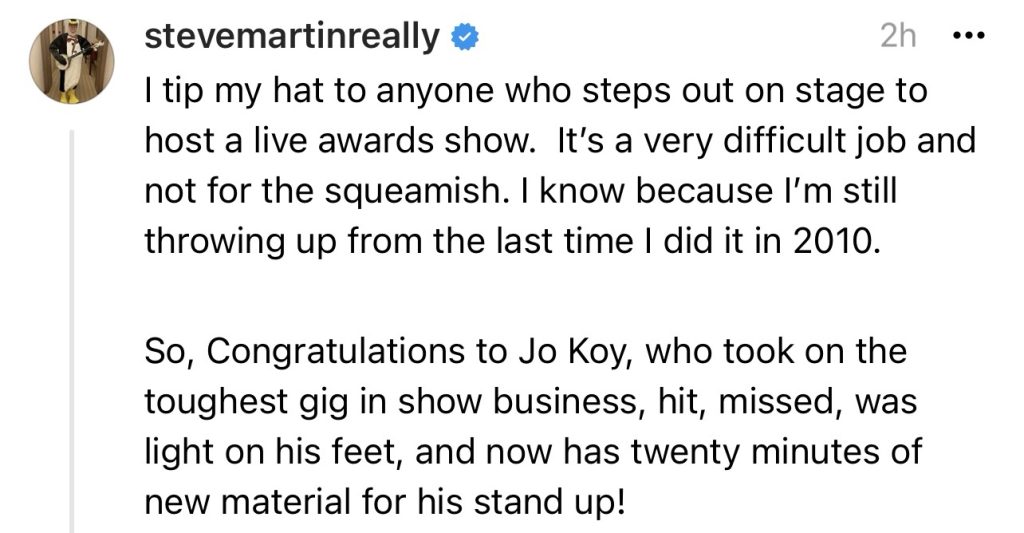
Why doesn’t the London coroner simply state what caused Sinead O’Connor’s death on 7.26.23? And why did it take five and a half months to cough up this evasive declaration?
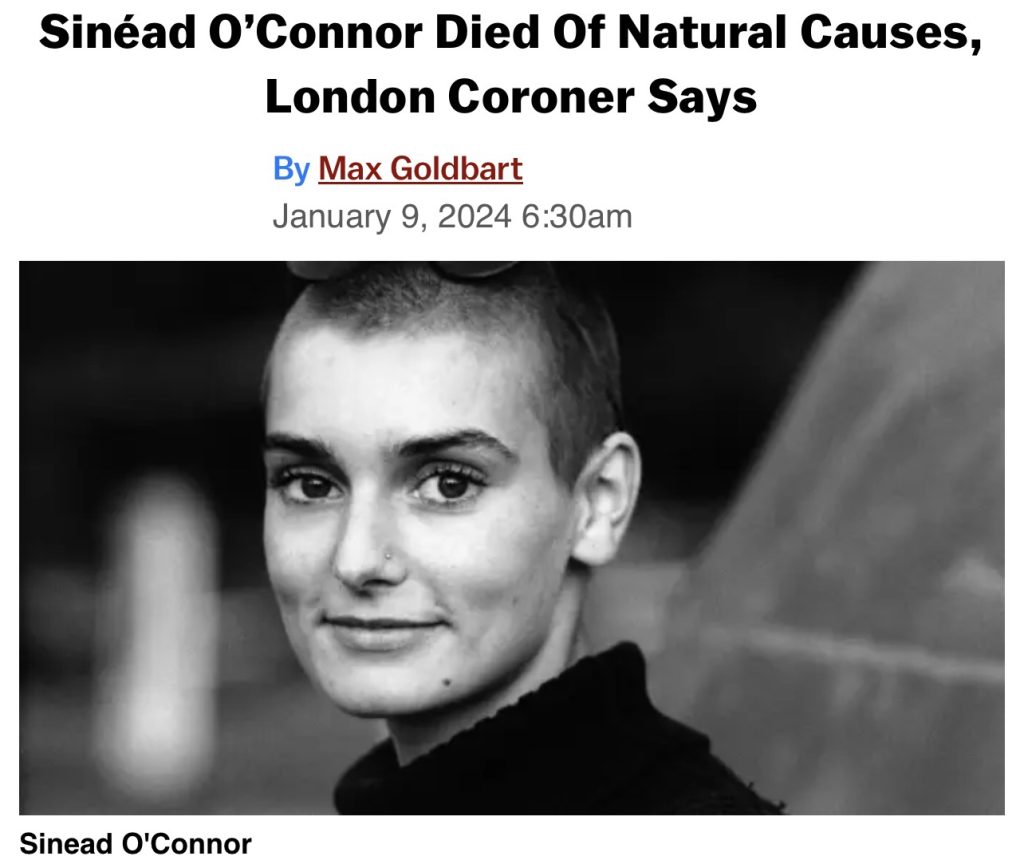
Toward the finish Paul Giamatti’s “Miles Raymond” is sipping from a bottle of 1961 Chateau Cheval Blanc while seated at a booth at a San Diego fast food joint…remember that?
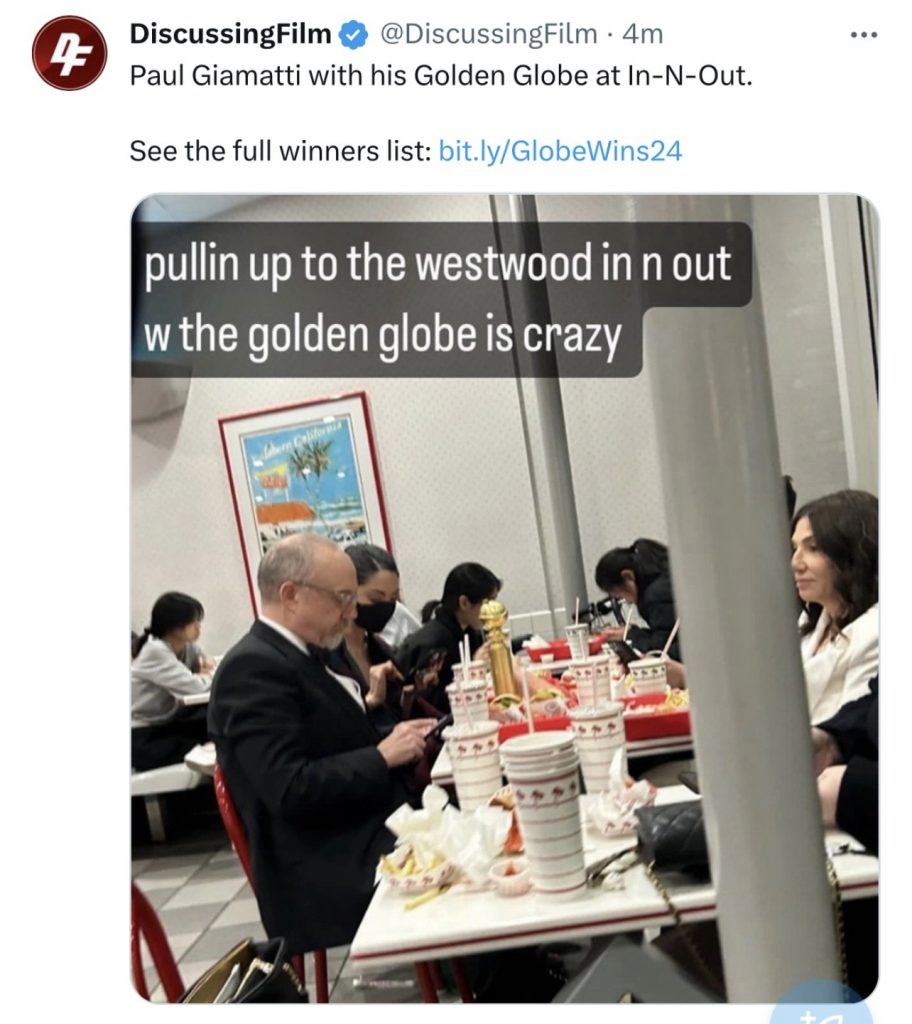
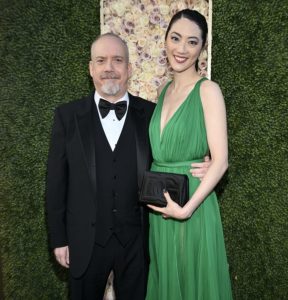
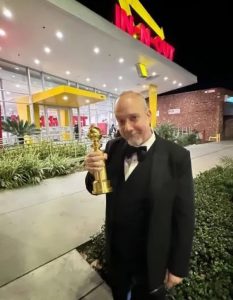
I respected Justine Triet’s Anatomy of a Fall, but I’ve never understood or acknowledged what some have described as a fascinating uncertainty.
Simply put, the writing and acting are such that I never even flirted with the possibility that Sandra Huller’s successful writer had pushed her less successful writer husband off a third-floor balcony to his death. It’s obvious that director and co-writer Triet strongly empathizes with Huller’s character so where’s the ambiguity?
During her Golden Globes acceptance speech after winning the best screenplay prize, Triet spilled the Anatomy plot beans. I didn’t raise my eyebrows when I heard her say “suicide” — I slumped into my seat and muttered “yeah…so?”
N.Y. Times’ Elena Bergeron, “Best and Worst Moments From The Golden Globes”:

Posted four days ago by former Disney and 20th Century Fox hotshot Bill Mechanic…a Deadline “guest column (1.4.24, 9:11 am):
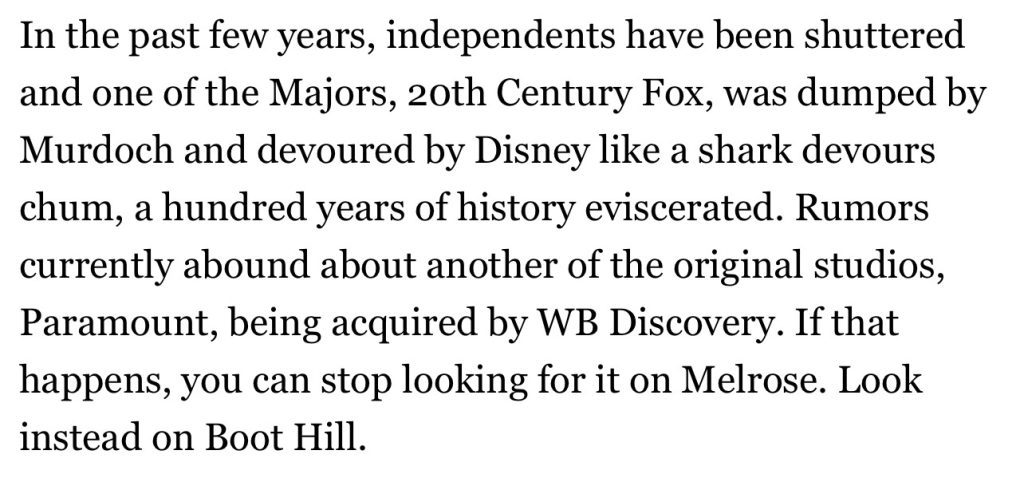
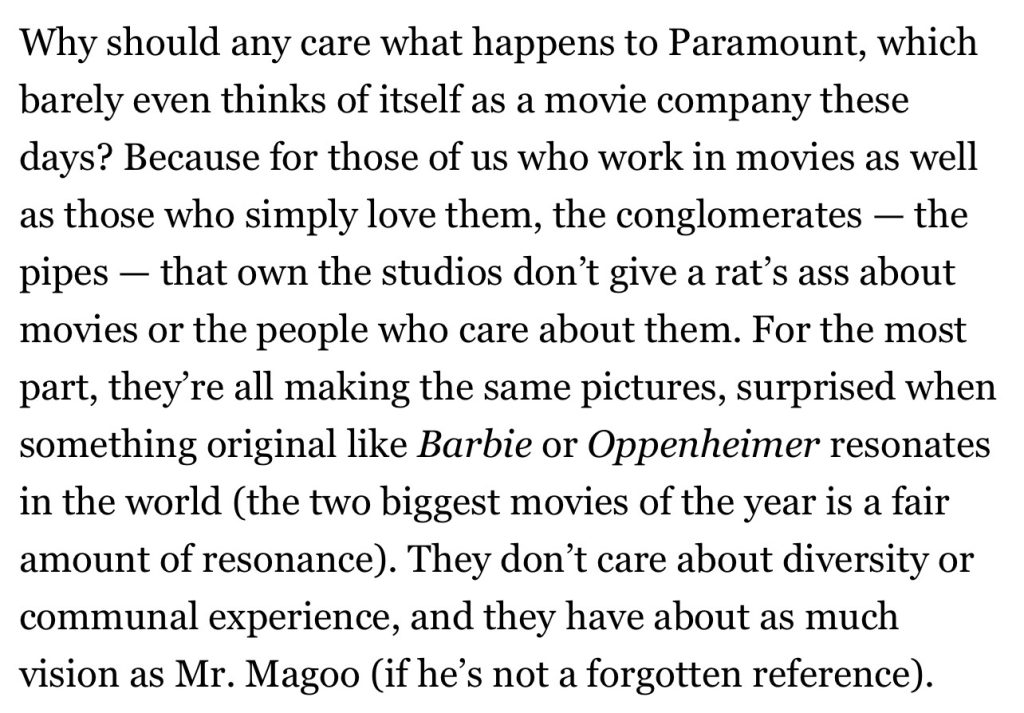
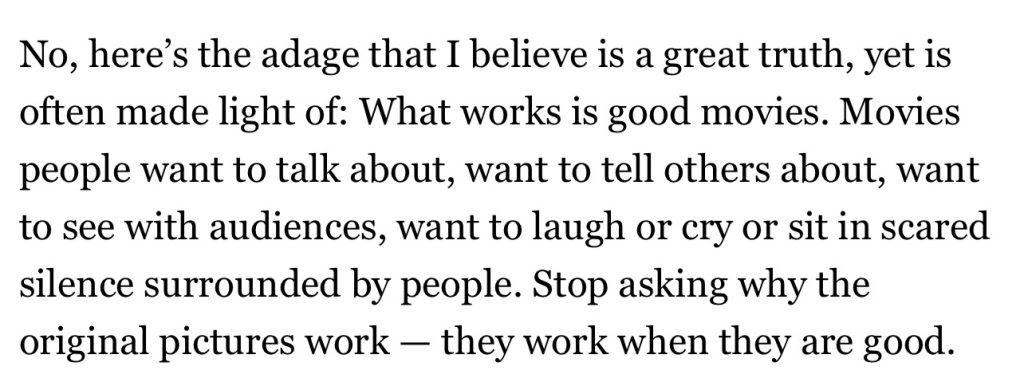
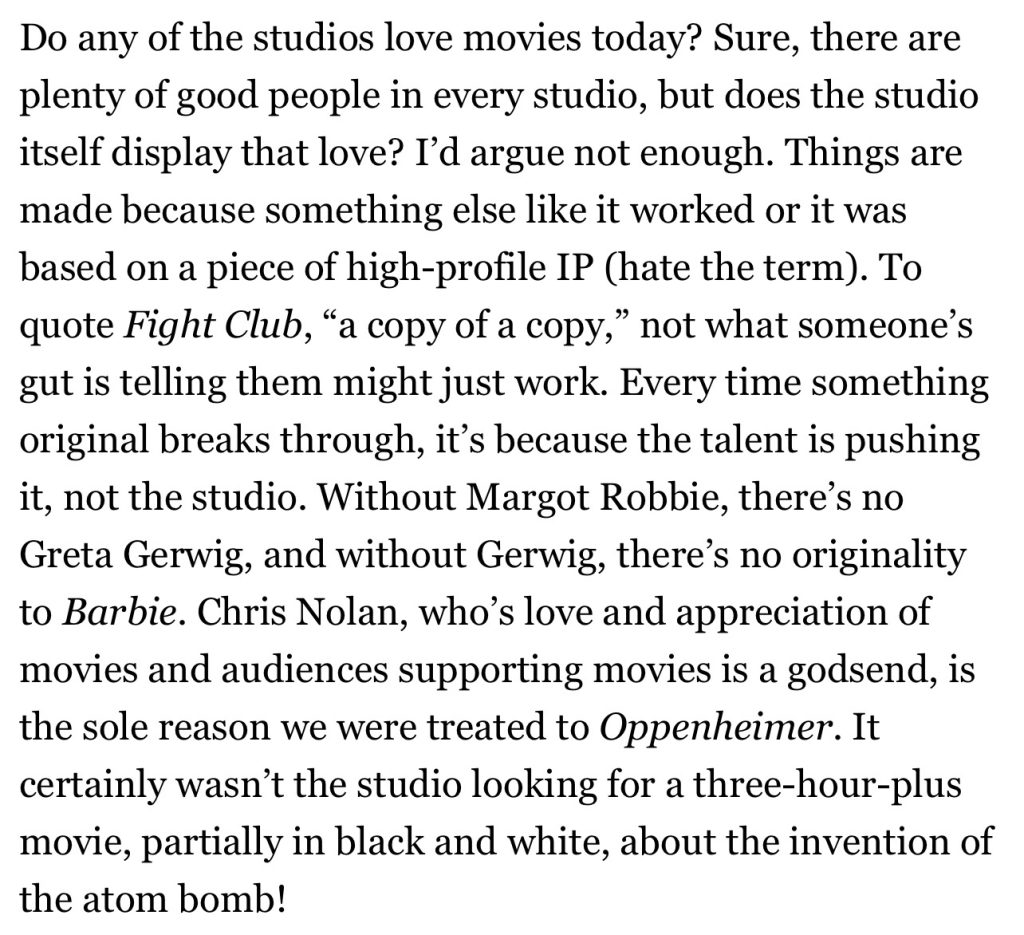
David “know it all” Poland has written the following about last night’s Golden Globes telecast:

Dead wrong: A modest-sized army of Academy lightweights, surface-skimmers and none-too-brights (i.e., mostly SAG/AFTRA members) was awakened and perhaps even jolted by the Emma Stone and Poor Things wins. Morning-after reassessments are happening all over town.